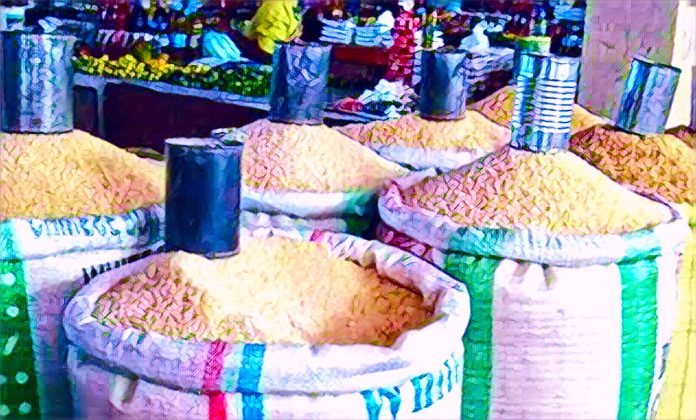Lagos, Nigeria – Nigerians are grappling with the harsh impact of soaring food prices, which continue to erode household incomes and exacerbate economic challenges across the country. The persistent rise in food costs has significantly burdened consumers, prompting concerns about food security and economic stability.
Recent data reveals that the cost of essential food items, including grains, vegetables, and proteins, has reached unprecedented levels in local markets. This surge in prices is attributed to various factors, including supply chain disruptions, inflationary pressures, and seasonal fluctuations exacerbated by climate events.
The economic strain is particularly felt among low-income families and vulnerable communities, who spend a significant portion of their earnings on basic food necessities. “The rising cost of food has forced us to cut down on other expenses. We are struggling to make ends meet,” said Blessing Okoro, a resident of Lagos.
Experts warn that prolonged high food prices could lead to increased poverty levels and food insecurity in Nigeria. The situation is further compounded by ongoing challenges in agricultural productivity and distribution, hindering efforts to stabilize prices and ensure adequate food supply.
Government responses have included measures to mitigate the impact, such as subsidies on certain food items and initiatives to boost agricultural production. However, these efforts have had limited success in alleviating the immediate burden on consumers facing higher food bills.
Economic analysts emphasize the need for comprehensive policies that address both short-term relief and long-term agricultural development. “To tackle food price inflation effectively, Nigeria must prioritize investments in agriculture, improve infrastructure, and strengthen market mechanisms,” stated Dr. Funmi Adebayo, an economist at a Lagos-based think tank.
The impact of high food prices extends beyond individual households to broader economic implications, including inflationary pressures and social unrest. As consumers allocate more income to food purchases, discretionary spending declines, affecting overall economic growth and stability.
International organizations, including the World Bank and the International Monetary Fund (IMF), have highlighted the urgency of addressing food security challenges in Nigeria. They stress the importance of policy coordination, investment in agricultural resilience, and social protection programs to shield vulnerable populations from the worst impacts of food price volatility.
Amid these challenges, there are calls for increased transparency in food pricing and distribution channels to prevent exploitation and ensure fair access to essential commodities. Civil society groups advocate for stronger regulatory oversight and accountability in the food supply chain to protect consumers’ interests.
Looking ahead, Nigerians remain hopeful that concerted efforts from both government and private sectors will yield sustainable solutions to alleviate food price pressures. The resilience of local farmers, coupled with strategic interventions in agriculture and economic management, could pave the way for a more stable and prosperous future.
Source: businessday.ng



